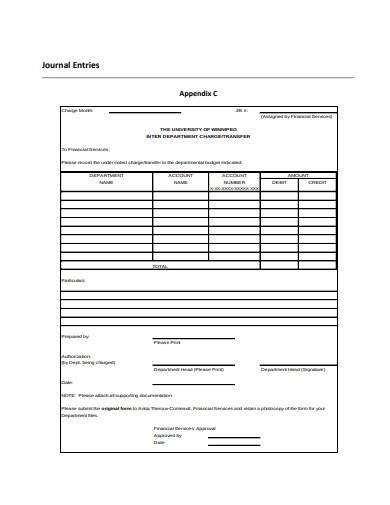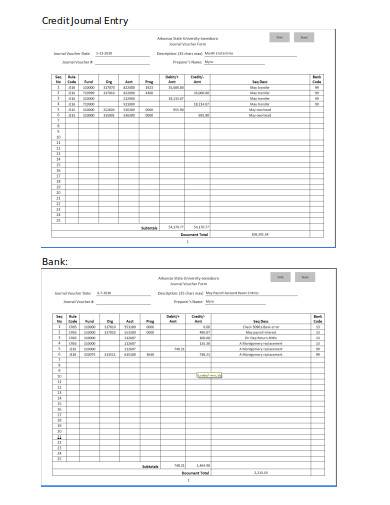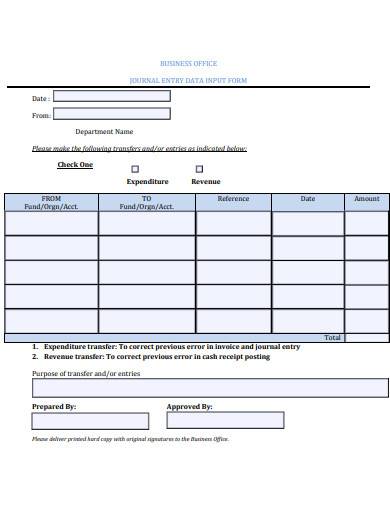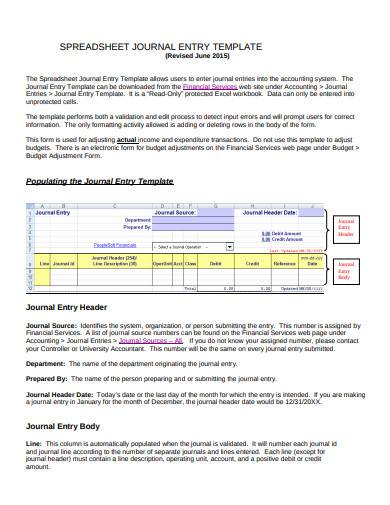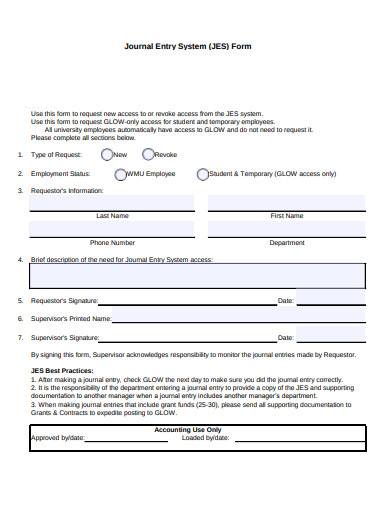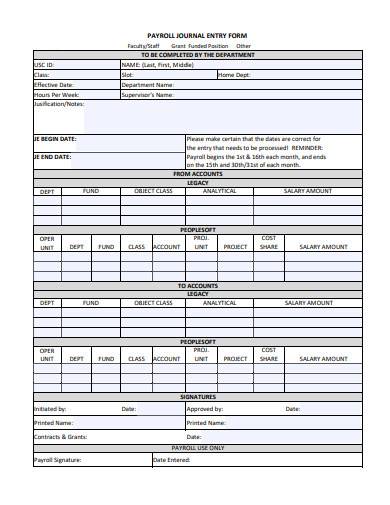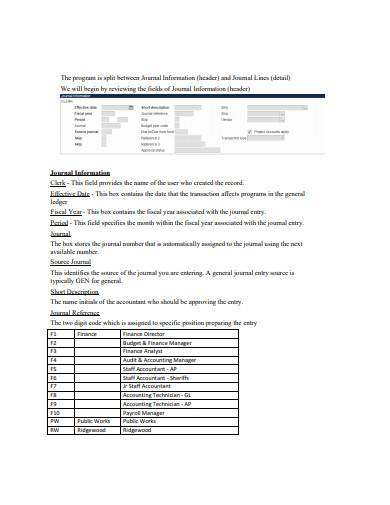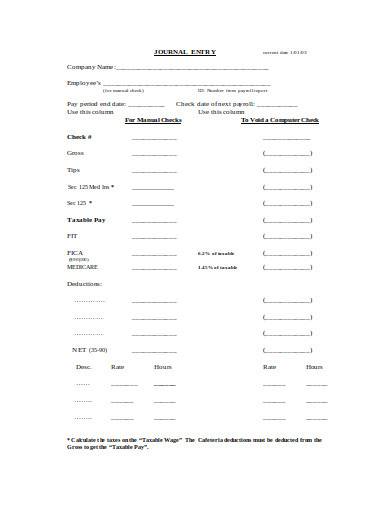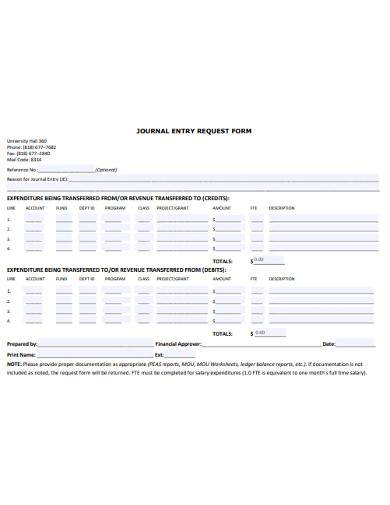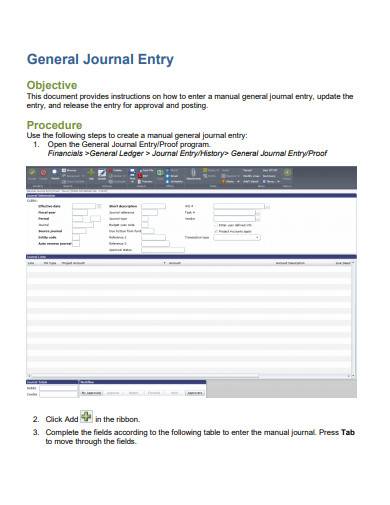Journal writing is a process in which an individual keeps a written record of their experiences, thoughts, observations, and reflections. Unlike a diary which is a record of what happens to a person’s everyday life, a journal can be written once a day, week, or month. Journal entry templates can be used online or can be a notebook or a binder. Some would use this material to record essential information about their day while others would use a writing prompt with a certain theme to express their thoughts.
FREE 10+ Writing Journal Entry Samples and Templates in MS Word | PDF
1. Journal Entry Template
2. Journal Entry in Word
3. Writing Journal Entry Data Input Form
4. Journal Entry Spreadsheet Template
5. Journal Entry System Form
6. Sample Payroll Journal Entry Form
7. Credit Journal Entry Template
8. Sample Payroll Journal Entry in PDF
9. Payroll Journal Entry in Word
10. Format of Journal Entry Request Form
11. General Journal Entry Template
What is a Writing Journal Entry?
In business, journal entries refer to the record of financial reports or transactions, providing details on how these transactions will affect the entries on their credit or debit balance sheets, then accounting teams will incorporate this information into the company’s general ledger which will be used to make business financial statements. However, in traditional and online classrooms, journal entries refer to tools used by students to express their impressions and reflections. Other learning materials that students can use include course planners, homework planners, daily sheet calendars, and more.
How to Create a Writing Journal Entry
Writing journal entries are writing assignments that encourage students to comprehend and compare issues, course readings, and life experiences to better understand the connection between theories and practices and to come up with justifiable and well-thought reflections and opinions. Some individual writes new entries in their journal on a daily or weekly basis and others would write one only whenever they like to.
Step 1: Choose a Schedule for Writing Your Journal
The first step is to choose the most convenient and appropriate time or schedule to write your journal entries. Make sure that you have eliminated all distractions which include your phone and social media. This will allow you to establish habits that you can stick to every day.
Step 2: Select a Topic That Interests You
Journal entries are most effective when it talks about a single topic such as your everyday routine, project plans, and personal problems or challenges you are currently facing. Some things you can write about are the activities you have done the previous day, the tasks you have completed from your daily work planner, progress towards your personal goals, and more.
Step 3: Explore Your Thoughts
Allow yourself to explore negative thoughts, random ideas, and expressive writing and include them in your entries. This method is reflective journaling which is known to be a type of therapy.
Step 4: Review Your Entries
Review your entries and writing process on a weekly, monthly, or quarterly basis. Past entries are connected and inform future entries. Do not revise your old entries unless you are fixing their typos and grammatical errors.
FAQs
What are the benefits of writing journals?
Writing journals can help you develop and adapt a daily writing habit, allows you to document your everyday life, addresses self-doubt, and enables you to asses them, more affordable than therapy, encourages personal growth, and helps you practice your writing skills.
What are the tips when writing a journal entry?
When you are writing a journal entry, you can create a to-do list first to get yourself started, use and add pictures and write about what they mean, reflect on inspirational quotes, and write a memory that you find important.
What are the advantages of writing journal entries?
Writing journal entries helps you in enhancing your writing skills, broaden your perspective about various topics, collect materials for essays, identify progress in your writing skills, overcome writing blocks, and spend more time on self-reflection.
Writing journal entries is a method used by individuals to record their everyday lives as well as their personal experiences, thoughts, reflections, and impressions on certain topics. This method is not only utilized to keep a record of a person’s thoughts and feelings but is also used to relieve stress by unloading and expressing their feelings without worrying about criticism. Journal writing is also considered an effective method to develop one’s writing skills and enhance the sensitivity and observation skills of their surroundings.
Related Posts
FREE 10+ Double Entry Journal Samples and Templates in MS Word | PDF
FREE 5+ Stock Ledger Samples and Templates in MS Excel | PDF
FREE 10 + Revenue Recognition Samples & Templates in PDF | MS Word
FREE 11+ Liability Insurance Application Samples and Templates in MS Word | PDF
FREE 11+ Petty Cash Reconciliation Samples and Templates in MS Excel | PDF
FREE 10+ Reconciliation Statement Form Samples and Templates in MS Word | PDF | MS Excel
FREE 10+ Annuity Disclosure Form Samples & Templates in PDF
FREE 9+ Absorption Costing Samples & Templates in PDF | MS Word
FREE 10+ Prepaid Expenses Samples and Templates in PDF | MS Excel
FREE 7+ Depreciation Worksheet Samples & Templates in PDF | MS Word
FREE 10+ Turnover Ratio Analysis Samples and Templates in PDF
FREE 11+ Cost Volume Profit Analysis Samples & Templates in PDF | MS Word
FREE 10+ Bank Reconciliation Statement Samples and Templates in PDF | MS Word
FREE 9+ Balance Sheet Reconciliation Samples & Templates in PDF | MS Word
FREE 7+ Annuity Review Checklist Samples and Templates in MS Word | PDF

